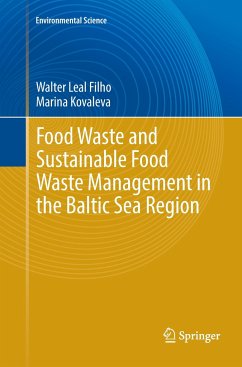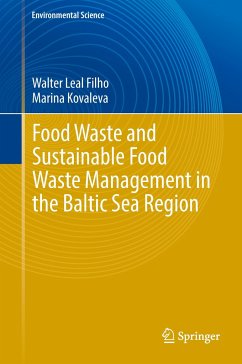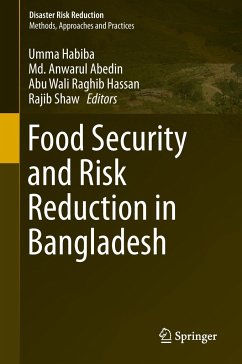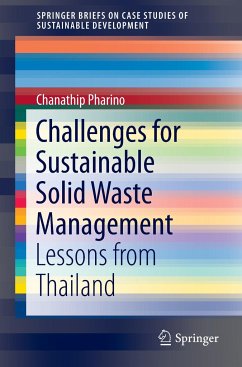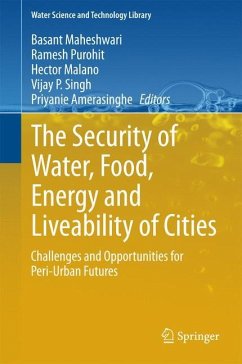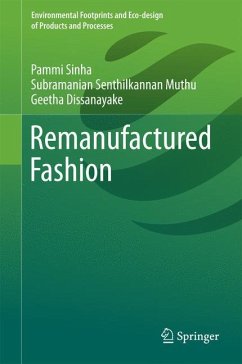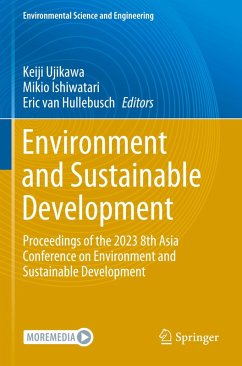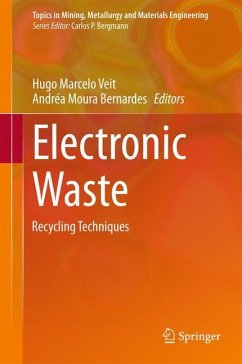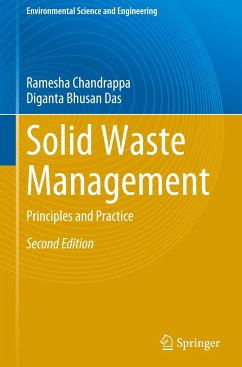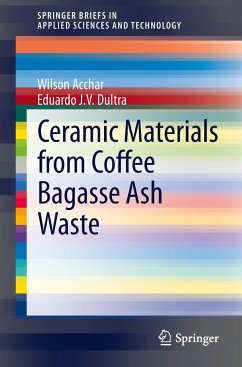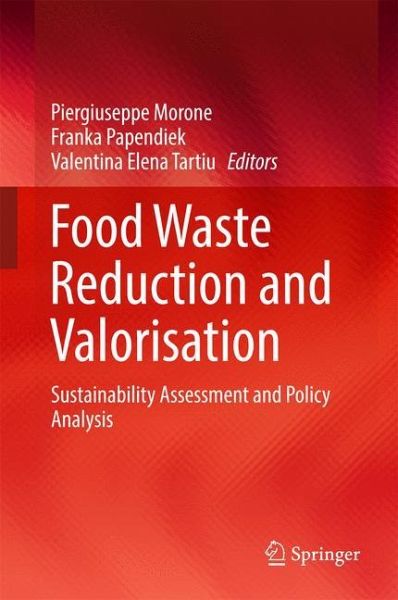
Food Waste Reduction and Valorisation
Sustainability Assessment and Policy Analysis
Herausgegeben: Morone, Piergiuseppe; Papendiek, Franka; Tartiu, Valentina Elena

PAYBACK Punkte
57 °P sammeln!
This book adds a new dimension to the sustainability assessment of food waste reduction and valorisation: policy analysis. Featuring a transdisciplinary analysis by key experts in the field, it identifies the drivers of change in food-waste reduction and valorisation technologies by looking, for example, at the regulatory framework and at policy actions undertaken by local and global actors.The book explores the development of regulations and policies for food-waste prevention, management, and valorisation at a global as well as European Union level. It also discusses the notion of food waste ...
This book adds a new dimension to the sustainability assessment of food waste reduction and valorisation: policy analysis. Featuring a transdisciplinary analysis by key experts in the field, it identifies the drivers of change in food-waste reduction and valorisation technologies by looking, for example, at the regulatory framework and at policy actions undertaken by local and global actors.
The book explores the development of regulations and policies for food-waste prevention, management, and valorisation at a global as well as European Union level. It also discusses the notion of food waste in legal terms and investigates the effects of the lack of a standard, universal definition of food waste on the efficient use of by-products, promising processes and products for technological and commercial exploitation.
Utilising mathematical mapping methods to assess food consumption impacts and providing supply chain models that allow the testing of consumption scenarios, thebook goes on to discuss a series of emerging technologies (tested at lab scale and/ or pilot scale) and opportunities for the valorisation of food waste.
The book explores the development of regulations and policies for food-waste prevention, management, and valorisation at a global as well as European Union level. It also discusses the notion of food waste in legal terms and investigates the effects of the lack of a standard, universal definition of food waste on the efficient use of by-products, promising processes and products for technological and commercial exploitation.
Utilising mathematical mapping methods to assess food consumption impacts and providing supply chain models that allow the testing of consumption scenarios, thebook goes on to discuss a series of emerging technologies (tested at lab scale and/ or pilot scale) and opportunities for the valorisation of food waste.





